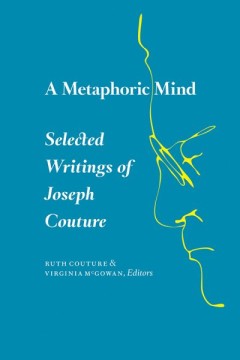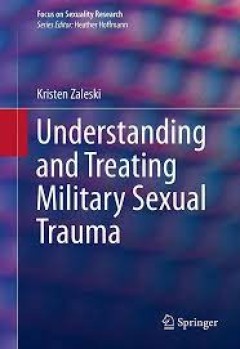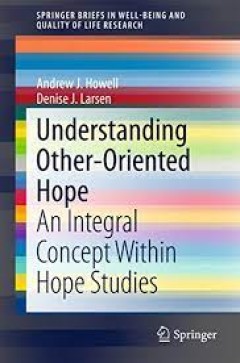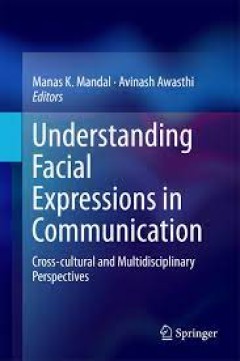Filter by

A Metaphoric Mind Selected Writings of Joseph Couture
With a foreword by Lewis Cardinal, A Metaphoric Mind brings together for the first time key works selected from among Dr. Joe’s writings, published and unpublished. Spanning nearly thirty years, the essays invite us to share in his transformative legacy through a series of encounters, with Aboriginal spirituality and ancestral ways of knowing, with Elders and their teachings, with education a…
- Edition
- -
- ISBN/ISSN
- 9781926836522.01
- Collation
- -
- Series Title
- -
- Call Number
- 329 pages

From Bricks to Brains The Embodied Cognitive Science of LEGO Robots
From Bricks to Brains introduces embodied cognitive science, and illustrates its foundational ideas through the construction and observation of LEGO Mindstorms robots. Discussing the characteristics that distinguish embodied cognitive science from classical cognitive science, From Bricks to Brains places a renewed emphasis on sensing and acting, the importance of embodiment, the exploration of …
- Edition
- -
- ISBN/ISSN
- 9781897425787.01
- Collation
- -
- Series Title
- -
- Call Number
- 354 pages

Connectionist Representations of Tonal Music Discovering Musical Patterns by…
Intended to introduce readers to the use of artificial neural networks in the study of music, this volume contains numerous case studies and research findings that address problems related to identifying scales, keys, classifying musical chords, and learning jazz chord progressions. A detailed analysis of the internal structure of trained networks could yield important contributions to the fiel…
- Edition
- -
- ISBN/ISSN
- 9781771992206.01
- Collation
- -
- Series Title
- -
- Call Number
- 6 x 9, 312 pages

The Future in Learning Science: What’s in it for the Learner?
This volume considers the future of science learning - what is being learned and how it is being learned - in formal and informal contexts for science education. To do this, the book explores major contemporary shifts in the forms of science that could or should be learned in the next 20 years, what forms of learning of that science should occur, and how that learning happens, including from th…
- Edition
- -
- ISBN/ISSN
- 978-3-319-16543-1
- Collation
- XV, 299
- Series Title
- -
- Call Number
- -

The Future Home is Wise, Not Smart
The Future Home is Wise, not Smart will be essential reading to home system developers, designers and researchers, responsible for smart home deployment or Ambient Assisted Living (AAL) who will get insights on how to follow a novel approach in developing and adapting smart home systems to their users’ needs. Students with an interest in software design for pervasive systems will benefit by r…
- Edition
- -
- ISBN/ISSN
- 978-3-319-23093-1
- Collation
- XII, 128
- Series Title
- -
- Call Number
- -

Understanding the Nature of Motivation and Motivating Students through Teachi…
This book is based upon three interrelated open naturalistic studies conducted to better characterise the motivational orientation of students in higher education. Open semi-structured individual interviews were conducted with undergraduates, students at community colleges and students in taught postgraduate courses in Hong Kong. The analysis used an exploratory grounded theory approach and res…
- Edition
- -
- ISBN/ISSN
- 978-981-287-883-0
- Collation
- 4 illustrations in colour
- Series Title
- -
- Call Number
- -

Understanding and Treating Military Sexual Trauma
This thorough analysis of sexual assault in the military examines the scope of this long-neglected issue using a lens informed by modern day attachment and trauma theories. Starting with an overview of sexual violence during wartime, it details the cultural and organizational aspects of military life--and entrenched ideas about war and masculinity--that compound military sexual trauma (MST) and…
- Edition
- -
- ISBN/ISSN
- 978-3-319-16607-0
- Collation
- XV, 116
- Series Title
- -
- Call Number
- -

Understanding Other-Oriented Hope An Integral Concept Within Hope Studies
This Brief integrates the literature and research on other-oriented hope. It discusses the position of other-oriented hope as one manifestation of the broader attribute of other-interest and argues the importance of other-interest in well-being. The Brief examines definitions and attributes of other-oriented hope, based upon theoretical and empirical understandings of hope more generally. There…
- Edition
- -
- ISBN/ISSN
- 978-3-319-15007-9
- Collation
- VI, 117
- Series Title
- -
- Call Number
- -

Understanding Facial Expressions in Communication Cross-cultural and Multidi…
This important volume provides a holistic understanding of the cultural, psychological, neurological and biological elements involved in human facial expressions and of computational models in the analyses of expressions. It includes methodological and technical discussions by leading scholars across the world on the subject. Automated and manual analysis of facial expressions, involving cultur…
- Edition
- -
- ISBN/ISSN
- 978-81-322-1934-7
- Collation
- 12 b/w illustrations, 24 illustrations in colour
- Series Title
- -
- Call Number
- -

Understanding Emotion in Chinese Culture Thinking Through Psychology
This mind-opening take on indigenous psychology presents a multi-level analysis of culture to frame the differences between Chinese and Western cognitive and emotive styles. Eastern and Western cultures are seen here as mirror images in terms of rationality, relational thinking, and symmetry or harmony. Examples from the philosophical texts of Confucianism, Daoism, Buddhism, and classical poetr…
- Edition
- -
- ISBN/ISSN
- 978-3-319-18221-6
- Collation
- 1 b/w illustrations, 6 illustrations in colour
- Series Title
- -
- Call Number
- -
 Computer Science, Information & General Works
Computer Science, Information & General Works  Philosophy & Psychology
Philosophy & Psychology  Religion
Religion  Social Sciences
Social Sciences  Language
Language  Pure Science
Pure Science  Applied Sciences
Applied Sciences  Art & Recreation
Art & Recreation  Literature
Literature  History & Geography
History & Geography